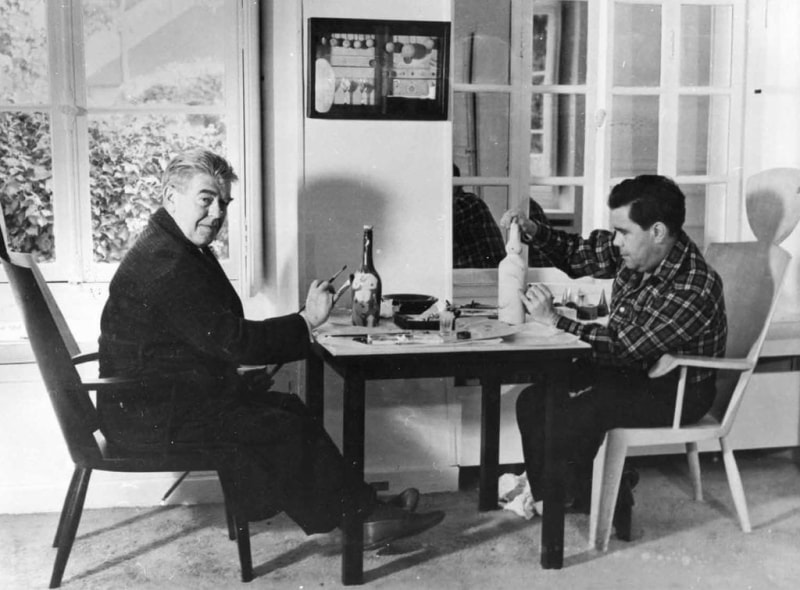
William Copley and his Mentor, René Magritte – FIAC
October 20 - 23, 2016
Grand Palais, Avenue Winston Churchill, 75008, Paris
Booth D34
VENUS
980 Madison Avenue
New York, NY 10075
(Paris, France) – For FIAC, VENUS is pleased to present William Copley and his Mentor, René Magritte. Juxtaposing paintings by René Magritte (1898-1967) and William “CPLY” Copley (1919-1996), the exhibition will illustrate the artists’ friendship shared over many years. The selection of paintings highlights the affinities of both style and subject matter between the two artists. Copley drew much inspiration from Magritte; the two painted together, and it was Magritte who encouraged Copley to pursue painting as a full time vocation. Like Magritte, Copley appreciated the power of objects as symbols. Surrealist icons such as bowler caps and umbrellas appear repeatedly in Copley’s works in homage to his Belgian mentor. Both artists purposefully defied the rules of painting three-dimensional space. From Copley’s chronicles of his time with Magritte, we learn of the famed Surrealist’s penchant for the obscene that likely influenced Copley’s desire to make a career out of painting the louche and provocative.
Once a pioneering collector in post-war Los Angeles, Copley decided in 1948 to open a gallery in which he would showcase the Surrealist artworks that he loved. The gallery allowed Copley the opportunity to spend ample time with the Surrealist movement’s most prominent but then-aged members including Man Ray, Marcel Duchamp, Max Ernst and Magritte. The famously unsuccessful Copley Gallery exhibited these artists in Los Angeles for the first time, long before any Surrealist market in the United States existed. In his 1977 memoir, Portrait of the Artist as a Young Dealer, Copley recalls his time managing his gallery and lists the seemingly infinite virtues of Surrealism. He cherished the movement’s ability to grant insight into a “private reality” or “poetic possible” that helped him make sense of the events in his own life.
As an artist and collector, Copley held Magritte in the highest esteem and valued the elder painter as both friend and mentor. Though Copley never achieved Magritte’s success or canonical status, their two legacies remain intertwined through their presence in the same important public and private collections, namely the De Menil Collection. Legendary art dealer Alexander Iolas—through whom Copley acquired several Surrealist masterpieces—exhibited works by both artists in his gallery, ensuring that the works found their way into the collection of his most prominent clients, John and Dominique de Menil.
The timing of VENUS’ exhibition at FIAC perfectly coincides with major institutional expositions for both artists throughout Europe: a Copley retrospective travelling from the Menil Collection to the Fondazione Prada, and a major Magritte exhibition at the Centre Pompidou. Juxtaposing paintings by both artists will demonstrate Magritte’s influence on one of his most devoted collectors, an art world original who would go on to make his own significant contribution to the art community.
For further information about the exhibition and availability, please contact the gallery at info@venusovermanhattan.com
For all press inquiries related to the exhibition, please email press@venusovermanhattan.com